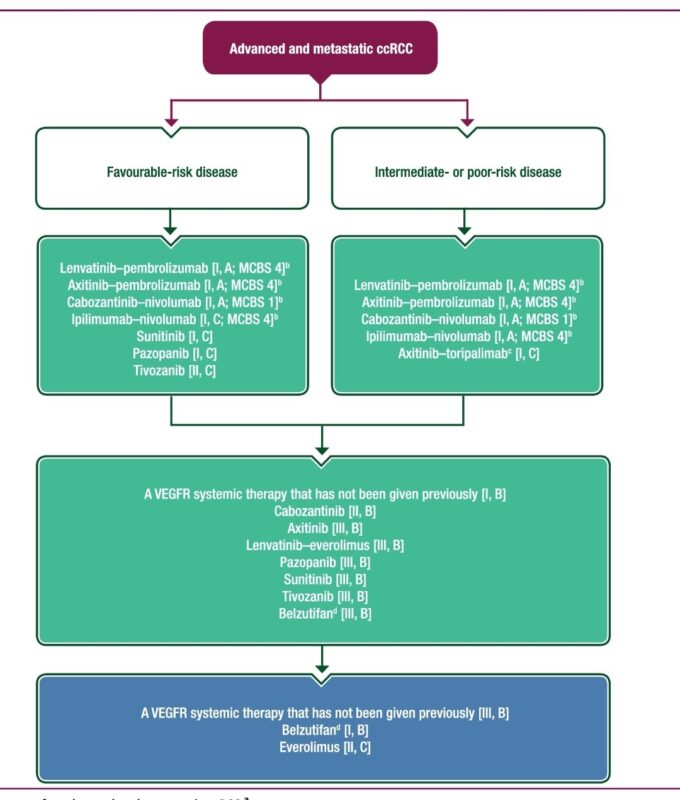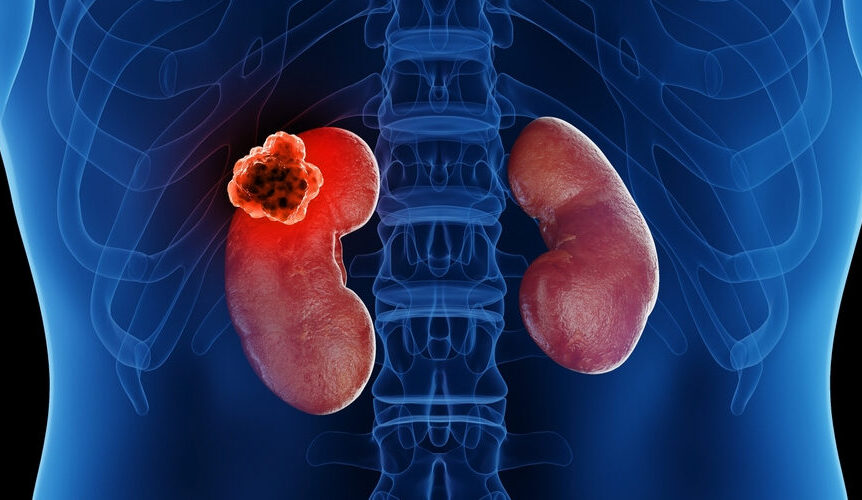Senthil Kumar, Medical Oncologist at Red Hills, Chennai, posted on X:
“First-Line Therapy in RCC: Expanding Choices in a New Era.
CheckMate 214: Nivolumab and Ipilimumab.
Dosing:
Nivolumab: 3 mg/kg IV every 2 weeks
Ipilimumab: 1 mg/kg IV every 3 weeks (4 doses)
Comparator Arm: Sunitinib, 50 mg oral daily (4 weeks on, 2 weeks off)
Updated Outcomes (8-Year Data):
Overall Survival (OS): 52.7 vs. 37.8 months.
Progression-Free Survival (PFS): 12.4 vs. 12.3 months (note: OS benefit , no PFS benefit, often the case with i/o).
Duration of Response (DoR): 76.2 vs. 25.1 months.
Complete Response (CR): ~12% across all risk groups.
Key Points:
Durable responses with sustained benefit.
May produce faster responses, esp in aggressive tumors.
An I/O + I/O doublet may also be used as a second-line therapy after a first-line I/O-TKI combination.
Higher toxicity burden: 56% grade 3/4 adverse events and 30% discontinuation rates.
CheckMate 9ER: Nivolumab and Cabozantinib.
Dosing:
Nivolumab: 240 mg IV every 2 weeks or 480 mg every 4 weeks
Cabozantinib: 40 mg oral daily
Updated Outcomes:
Median OS: 47 vs. 36 months.
Progression-Free Survival (PFS): 16 vs. 8 months.
Particularly effective in bone metastases subsets.
Key Points:
Cabozantinib was used at a lower dose (40 mg) though
KEYNOTE-426: Pembrolizumab and Axitinib.
Dosing:
Pembrolizumab: 200 mg IV every 3 weeks
Axitinib: 5 mg oral twice daily
Updated Outcomes:
OS: 47.2 months.
PFS: 15.7 months (ESMO 2023).
Key Points:
Most tolerable combination with fewer grade 3/4 adverse events.
CLEAR Study: Lenvatinib and Pembrolizumab.
Dosing:
Lenvatinib: 20 mg oral daily
Pembrolizumab: 200 mg IV every 3 weeks
Updated Outcomes:
OS: 53.7 months (ESMO 2023).
Key Points:
Exceptional PFS and ORR results, with sustained survival benefit.
Particularly effective in aggressive or symptomatic tumors.
JAVELIN Renal 101: Avelumab and Axitinib.
Dosing:
Avelumab: 800 mg IV every 2 weeks
Axitinib: 5 mg oral twice daily
Updated Outcomes:
Median OS: 45 vs. 39 months.
Median PFS: 14 vs. 9 months.
COSMIC-313: Triplet Therapy (Cabozantinib, Nivolumab and Ipilimumab).
Dosing:
Cabozantinib: 40 mg oral daily
Nivolumab: 3 mg/kg IV every 3 weeks
Ipilimumab: 1 mg/kg IV every 3 weeks (4 doses)
Updated Outcomes:
Progression-Free Survival (PFS): 17.0 vs. 8.3 months.
Key Points:
The combination targets VEGF, PD1, and CTLA4 pathways, enhancing efficacy in intermediate-/poor-risk patients.
However, the toxicity is very high, with frequent grade 3/4 adverse events and higher discontinuation rates compared to other combinations.
Should be reserved for selected patients who can tolerate aggressive therapy and may benefit from triple pathway inhibition.
Comparing I/O + I/O and I/O + TKI
1. Response Rates:
I/O + TKI (e.g., Nivolumab + Cabozantinib, Lenvatinib + Pembrolizumab) show 10-20% higher ORR than I/O + I/O (e.g., Nivolumab + Ipilimumab).
I/O + I/O may provide faster responses for aggressive tumors.
2. Toxicity Profile:
Most tolerable: Pembrolizumab + Axitinib.
Least tolerable: Nivolumab + Ipilimumab (56% grade 3/4 AEs, 30% discontinuation rates).
Triplet therapy has the highest toxicity burden, requiring careful patient selection.
3. Affordability:
TKI combinations are generally more cost-effective than I/O + I/O or triplet regimens.
4. Sustained Benefit:
Immunotherapy regimens (I/O + I/O or I/O + TKI) show sustained duration of response and prolonged PFS compared to TKIs alone.
Key Insights for Clinical Decision-Making
Favorable-Risk Patients:
An informed decision may be made on TKI vs. I/O + I/O vs. I/O + TKI based on affordability, tumor volume, aggressiveness, site of metastases, fitness, and toxicity profile.
Intermediate-/Poor-Risk Patients:
I/O + TKI combinations like Nivolumab and Cabozantinib or Pembrolizumab and Lenvatinib are highly effective, especially for aggressive disease or bone metastasis.”



